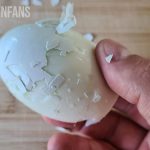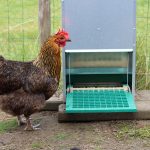How Long Do Eggs Last? (Egg Float Test Explained)
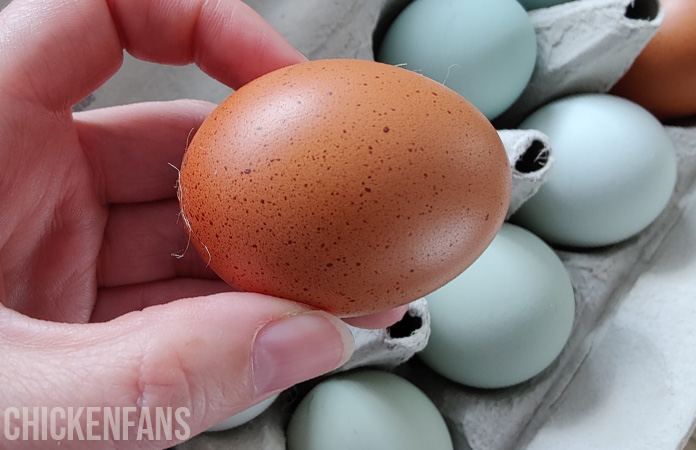
Eggs are common ingredients in many kitchens, used for everything from baking and cooking to breakfast and snacks. But have you ever wondered how long eggs stay fresh and safe to eat?
In this article, we will explore the shelf life of eggs, how to determine if an egg is still fresh, and the best ways to store them.
How Long Do Eggs Last?
Fresh, unwashed, refrigerated eggs can be used at least four weeks after laying. Storing unwashed eggs at room temperature decreases that time by one or two weeks. Store-bought washed eggs must be refrigerated, and the expiration date on the label should be checked.
How Long Do Store-Bought Eggs Last?
Overall, store-bought eggs can last four to five weeks, but always check the expiration date on the box. Eggs from the supermarket are already a couple of weeks old. In the US, store eggs are washed and refrigerated. In most other countries, store eggs are stored unwashed and at room temperature.
If you want to keep your eggs fresh as long as possible, we advise always refrigerating them, especially if you bought them refrigerated. Refrigerated eggs in the store are washed eggs and should always be kept at cool temperatures of around 40°F (6°C).
Unwashed storebought eggs can be kept on the kitchen counter, but we always advise keeping store eggs in the fridge, even unwashed eggs.
The eggs will last at least four weeks in the fridge but always double-check the expiration date. It’s generally not recommended to eat grocery eggs after their expiration date has passed. That being said, it’s important to note that expiration dates on eggs are not a precise indicator of safety or rotten eggs.
How Long Do Fresh Eggs Last?
Freshly laid, unwashed, and refrigerated eggs will last four weeks to two months. Storing fresh unwashed eggs at room temperature will decrease that time and can be used until they are 2-3 weeks. That said, eggs stored at room temperature should be consumed as soon as possible.
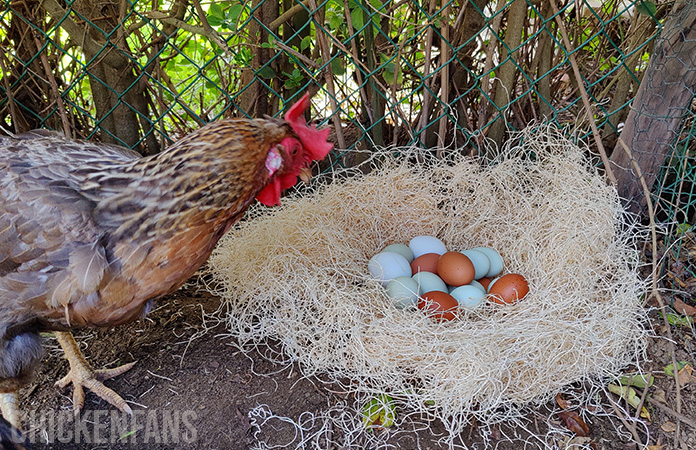
Keeping freshly laid eggs on the counter at room temperature is generally not recommended, even if they are unwashed. If you do not have access to refrigeration and must store eggs at room temperature, keeping them in a cool, dry place away from direct sunlight is important.
If you have freshly laid eggs that are unwashed and refrigerated, they can be stored for up to 4-5 weeks from the time they were laid.
Remember that once you wash eggs, they should be used within a week and refrigerated, as washing removes the natural protective coating on the eggshell that helps keep bacteria out.
How Can You Check Whether an Egg Is Fresh?
There are several ways to determine if an egg is fresh or not. Here are some methods that are commonly used and easy to do:
- Egg Float Test
- Shake Test
- Sniff Test
The Egg Float Test
The egg float test is a simple way to check the freshness of eggs. Here’s how it works:
Fill a bowl or a glass with enough cold water to submerge an egg fully.
Gently place the egg in the water and watch what happens.
a) If the egg sinks to the bottom and lies flat on its side, it is very fresh and good to use.
b) If the egg stands upright on the bottom or tilts on one end, but remains at the bottom, it is still fresh, but not as fresh as the first egg.
c) If the egg floats to the top, it is no longer fresh and should not be used.
What causes an egg to float? The air pocket in the egg grows larger as the egg ages, causing it to float to the surface.
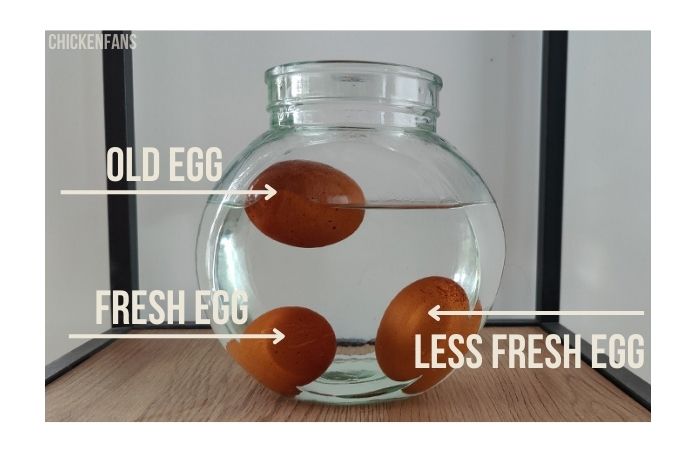
This happens because an eggshell is porous, and air can gradually penetrate the shell as the egg ages. The more air inside the egg, the higher it will float.
It’s important to note that the egg float test is not a sure method for determining the freshness of an egg. Other factors such as temperature, storage conditions, and handling, can affect the freshness of an egg. Therefore, it’s always a good idea to use other methods, such as sniff tests, to confirm the freshness of an egg before using it.
The Shake Test
The shake test is another easy method for checking the freshness of eggs. Let’s see how the shake test works.
Hold the egg close to your ear and shake it gently.
Listen for any sounds of sloshing or movement inside the egg.
a) If you don’t hear a sound, it means the egg is fresh, and the yolk and white are not separated.
b) If you hear a slight sound or movement, the egg is still good to eat but is not as fresh as an egg that does not make any sound.
c) If you hear a loud sloshing sound or can feel the egg moving inside, it means the egg yolk and white have separated. Meaning it is likely old and should not be used.
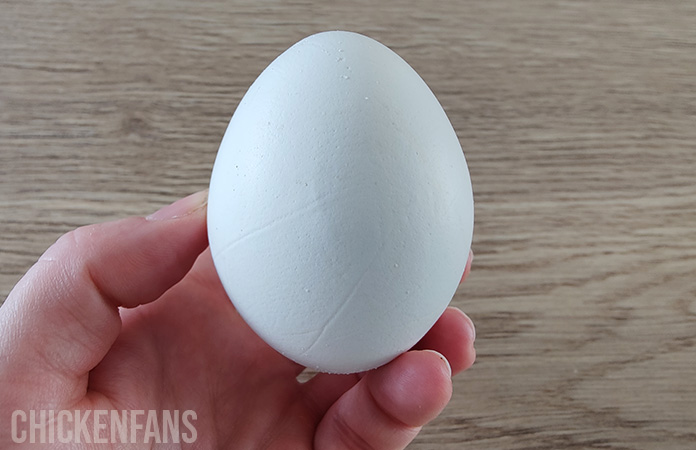
The Sniff Test
The sniff test is our third simple method for checking the freshness of eggs.
Take the egg from the refrigerator and crack it open in a bowl.
Smell the egg to see if it has a bad odor, and check whether the egg white is firm or watery.
a) If the egg has no noticeable smell, it is fresh and good to use.
b) If the egg has a mild unpleasant odor or smells bad, it is no longer fresh and should not be used.
c) If the egg has no noticeable smell but the egg white looks watery, it means it’s an older egg. Still ok to eat, but less fresh.
This test works because as the egg ages, the proteins in the egg break down and release gases, causing a bad smell to develop. If the egg smells bad, it may indicate that it has gone bad and should be discarded.
If you’re unsure about the freshness of your eggs, cracking them in a bowl one by one before use is the best method to ensure non-rotten eggs.
How Long Will Hard-Boiled Eggs Last?
Hard-boiled eggs can last up to one week in the refrigerator if you haven’t peeled them. Once peeled, hard-boiled eggs should be consumed within a day or two to ensure their freshness and prevent the growth of bacteria.
It’s best to store them in a covered container to prevent odors from transferring to the eggs.
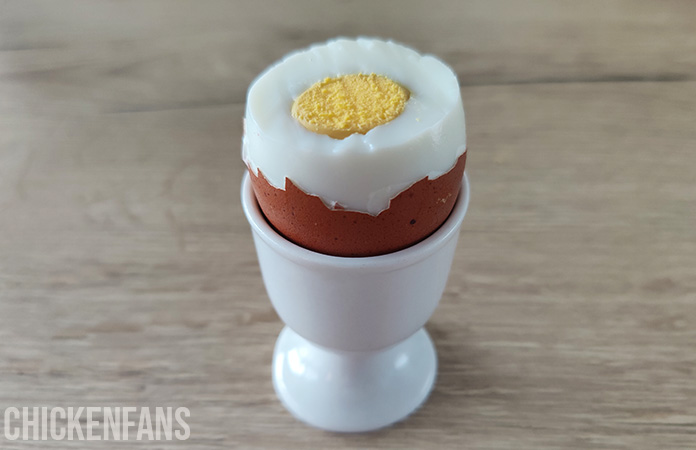
What’s the Best Way to Store Eggs?
If you want to keep your eggs fresh for as long as possible, whether they’re store-bought or fresh from your own flock, it’s always best to refrigerate them. Place the eggs in a carton in the main body of the refrigerator, not in the door.
Here are some tips for storing eggs:
- Keep eggs in their (original) carton to protect them from absorbing odors.
- Store eggs in the main body of the refrigerator, where the temperature is consistent and stays between 33°F and 40°F (0.5°C to 4°C).
- Do not wash eggs before storing them, as this removes the protective coating that helps to keep them fresh. Store-bought eggs are already washed and, therefore, should always be refrigerated.
- If an egg is cracked or damaged, discard it or use it as soon as possible.
Alternative Methods to Store Eggs
While refrigeration is the most common way to store eggs, alternative methods can help extend their shelf life. From oil coating to freezing, water glassing, and dehydrating, there are several techniques that you can try.
Let’s explore some of these alternative methods and provide tips on how to store eggs properly.
Oil Coating
To oil coat eggs, you’ll need a small amount of vegetable or mineral oil. Gently rub some oil (you can use gloves) over the entire eggshell surface. This helps to seal the pores in the eggshell and prevent air from entering the egg.
Once you’ve coated the eggs, store them in a cool, dry place away from direct sunlight. Preferably a pantry or a cellar; you can also keep them in the refrigerator.
Place the eggs in a carton with the small end facing down and flip them once a month.
Most people use mineral oil for oil coating, but you can use any vegetable oil you have, like olive or coconut oil.
Eggs that are oil coated can be preserved anywhere between 6 months (when stored in a cool dark place) to a year (when stored in the fridge).
Freezing
Freezing eggs is another commonly used method to preserve eggs. Keep in mind the texture of the egg will change after freezing, so it may not be suited to use in some recipes.
You can separate the egg whites from the yolks and freeze them separately or whisk the eggs. Pour the eggs or mixture into an ice cube tray, freezer-safe container, or sandwich bag.
Label the container or bag with the date and number of eggs or egg parts inside. Eggs can be preserved for up to six months when frozen.
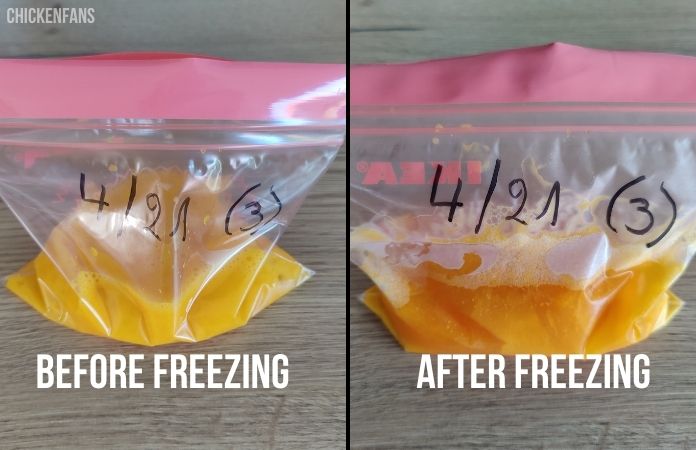
Never freeze an egg in its shell. The egg will expand during freezing, causing the egg to crack.
Water Glassing
Water glassing is the most traditional method of preserving eggs and involves storing them in a solution of water and pickling lime or sodium silicate. By using this technique, you can store eggs for 12 to 18 months. It’s important only to use unwashed, fresh eggs. Don’t use washed or store eggs for water glassing.
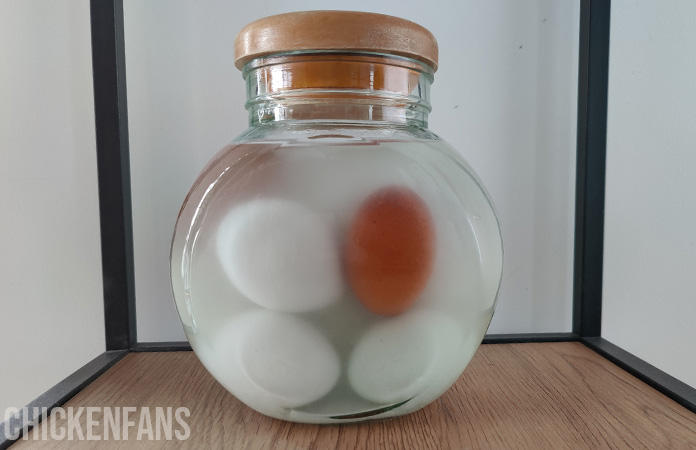
How Water Glassing Works
Find a container, jar, or bucket that’s large enough for the amount of eggs you want to store. If you’re doing this for the first time, it’s best to start with a smaller number of eggs.
Fill the container with clean, filtered water, preferably distilled or natural spring water. Make sure the water is at room temperature.
Both sodium silicate and pickling lime are very effective at preserving eggs, so it’s a matter of preference which one you use.
Sodium silicate, also known as water glass, creates a barrier around the egg, preventing air and bacteria from entering the shell. Pickling lime increases the presence of alkalinity in the egg (pH level), which helps to kill bacteria and provides extra protection during storage.
Both methods require careful handling to ensure the eggs are correctly stored, so always follow instructions on the packaging.
Mix the preferred water glassing material, pickling lime or sodium silicate, with water, following instructions on the packaging.
Generally, for sodium silicate, mix 11 parts water with one part sodium silicate. For pickling lime, use equal parts of 1 quart of water to 1 ounce of lime.
Mix the solution until it’s completely dissolved, and gently place the eggs in the container with the pointed end down if possible.
Firmly place the lid on the container and place the container in a dry, cool, and dark place, like a basement or storage area.
Remember to wash the eggs thoroughly before use.
Dehydrating
Dehydration involves removing the moisture from the egg by drying it out. Dehydrated eggs can be stored for several months and rehydrated when needed.
To dehydrate eggs, you need to crack the eggs open and place them in a bowl or blender.
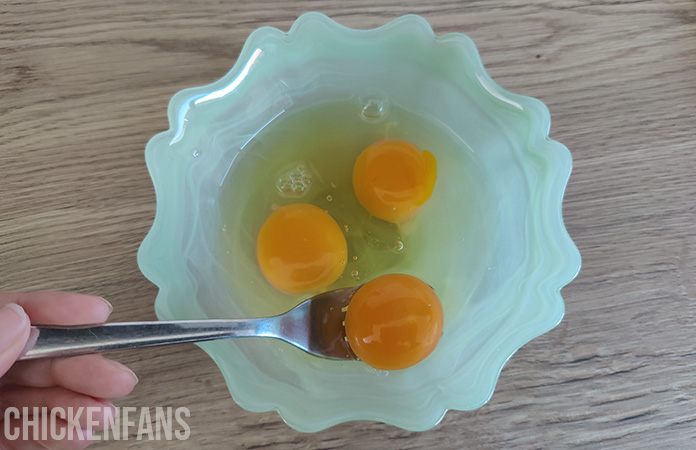
Mix or blend the mixture very well. Next, spread the mix onto a dehydrator tray or parchment paper-lined baking sheet.
Place the tray or sheet in a dehydrator or oven set at a low temperature, between 130-150°F (54-65°C). Leave the eggs to dry; the process can take up to 12 hours, depending on the number of eggs you used and your oven type.
Once the eggs are fully dried, remove them from the dehydrator or oven and allow them to cool. Then, transfer them to an airtight container and store them in a cool, dry place.
To store the eggs more efficiently, put them back into the blender and blend them into a fine powder.
If the powdered eggs are stored in a fully airtight container, they can be kept for years.
To rehydrate the eggs, mix one part of warm water with two parts egg mix. Stir and allow the mixture to sit for a few minutes before using it in a recipe.
Summary
Eggs are common ingredients in many kitchens, used for everything from baking and cooking to breakfast. How long they last and how to preserve them is a very interesting topic, as there are many differences between store-bought eggs and fresh eggs.
Several methods for preserving eggs include refrigeration, oil coating, freezing, and water glassing. Regardless of the preservation method, it’s important always to store your eggs correctly or toss them out when they smell bad.
Related Questions
Yes, it’s better to store eggs in the fridge as it helps to slow down bacterial growth. Refrigerated eggs last longer than eggs kept at room temperature. Storing eggs in the fridge at or below 40°F (4°C) is the safest and most effective way.
Yes, you can keep eggs at room temperature, but only temporarily, and the eggs have to be unwashed and fresh. Storing eggs at room temperature will increase the risk of bacterial growth and is therefore not recommended.
While most US supermarkets store their eggs in the fridge, it’s uncommon to find refrigerated eggs in European supermarkets. Eggs in EU supermarkets are not washed and do not need to be refrigerated, while US eggs are washed, removing the protective bloom.
Signs of a bad egg include a strong sulfur-like odor, discoloration or unusual texture of the egg white or yolk, a slimy or cloudy appearance, and a foul smell when cracked open. If an egg shows any of these factors, it is best to discard it.
No, it means the egg is older and has lost some of its moisture, and air has entered through the shell. Not all eggs that float are bad. Crack the egg to check the freshness before use.
Further Reads
Top 15 Brown Chicken Breeds: All Beginner-Friendly
20 Amazing Giant Chicken Breeds
10 Popular Chickens With Colored Eggs
8 Beautiful Black Chicken Breeds
Top 5 Best Egg Layers that Lay Green Eggs




